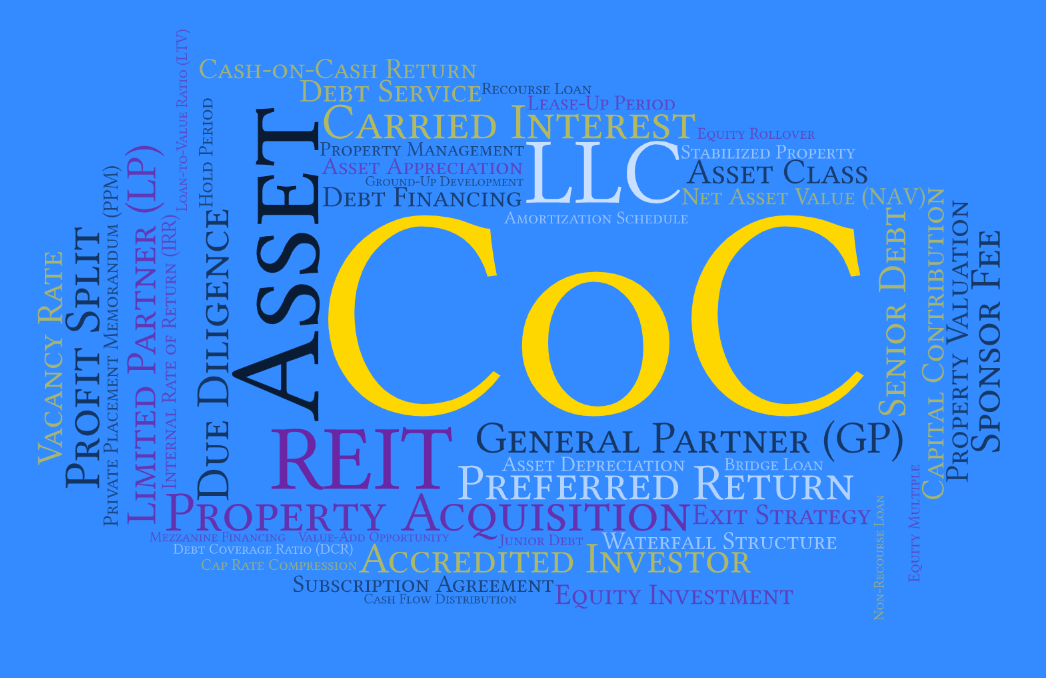As passive investors delve into the labyrinth of syndicated real estate investments, the ability to...
Decoding Real Estate Jargon: Recourse vs. Non-Recourse Loans
When it comes to multifamily syndications, one of the key aspects passive investors should be aware of is the type of loan used to finance the property. There are two main types of loans in real estate syndications: recourse and non-recourse loans. Understanding the differences between these loan types is critical for assessing the risk of your investment.
What is a Recourse Loan? 🏦
A recourse loan is a type of financing in which the borrower is personally liable for the debt. This means that if the property doesn’t perform as expected and the loan goes into default, the lender can seize the collateral (the property) and also go after the borrower’s personal assets to recover the remaining debt. In real estate syndications, recourse loans are generally considered riskier for General Partners (GPs), as they may need to cover shortfalls from their own pocket.
While recourse loans can be riskier, they often come with lower interest rates or more favorable terms since the lender has more options to recover their funds.
What is a Non-Recourse Loan? 🛡️
A non-recourse loan, on the other hand, limits the lender's ability to recover losses. In the case of a default, the lender can seize only the collateral (the property itself) but cannot go after the borrower's personal assets. This is a much safer option for GPs, as their personal assets are protected.
Non-recourse loans are often used in multifamily syndications because they reduce risk for the GP team. While they may come with slightly higher interest rates or stricter underwriting requirements, the reduced personal liability makes them an attractive option for syndications.
Carve-Outs: "Bad Boy" Guaranties 🚩
Even with non-recourse loans, it’s important to note that there are carve-outs or exceptions, often referred to as "bad boy" guaranties. If the borrower engages in fraudulent activities, gross negligence, or mismanagement, the lender may still hold the GP personally liable, even with a non-recourse loan.
Impact on Investors 📊
For Limited Partners (LPs), understanding whether the syndication is financed with recourse or non-recourse debt is crucial. While LPs typically have limited liability and are not personally liable for the loan, the loan structure affects the overall risk of the investment. Non-recourse loans generally offer a safer investment environment, as the GP is not personally liable beyond the property itself.
Which Type of Loan is Better? 🤔
There's no one-size-fits-all answer when it comes to recourse vs. non-recourse loans. The right loan depends on the specific deal, the property’s condition, the market, and the business strategy. Many syndicators prefer non-recourse loans for the lower risk profile, but in certain value-add or highly leveraged deals, recourse loans might make sense if the terms are more favorable.
Conclusion 💼
In multifamily syndications, the type of loan used to finance the property can significantly impact the risk and return profile of the investment. While non-recourse loans are generally preferred for their lower risk, understanding the specifics of the loan agreement is essential for any savvy investor.
At Blue Path Holdings, we always prioritize the safety and long-term success of our investments by thoroughly evaluating financing options and ensuring that we choose the best loan structure for each property.
Ready to learn more about how we structure our deals? Contact us today to explore current opportunities and take the next step toward passive real estate investment success! 🚀
By better understanding these key financial tools, investors can make informed decisions and manage risk more effectively in their real estate syndication portfolios.
Let's Continue the Conversation: We invite you to engage with us in several ways:
-
Explore Opportunities: Discover how our syndications can improve your retirement plan. Contact us to explore investment opportunities and gain insights into the path to passive income. CLICK HERE to schedule a call.
-
Subscribe to Our Blog: Stay informed about the role of real estate in retirement planning. Subscribe to our blog and receive regular updates, expert advice, and success stories.
-
Connect on Social Media: Join our community on social media to interact with like-minded individuals who are also on the journey to a prosperous retirement.
CLICK HERE to schedule a call.
Download our free e-book at the link https://content.bluepathholdings.com/free-ebook.

 By
By



